Jasmines are one of the mainstays of a summer garden. They bloom merrily in the hot sun right until about later June-early July in the Gulf and fill your garden with beautiful white flowers and amazing scents. There are many varieties with do well here from the Juhi to the Arabian multi petalled jasmine, and the Thai Jasmine or Murraya. The Night Queen does beautifully until early June and then needs complete shade. It is difficult to save during the summer and 3 in 4 plants do die in the heat. However, all other Jasmine varieties do very well. They will stop flowering in July, August, and September but will come back in October and then become dormant in Winter.
The season for the heavenly scented Jasmines is here. Most of the varieties are extremely fragrant except for snake jasmine which is very pretty but has no fragrance. Spring is a great time to acquire a new plant and you can either plant in a bed or in a pot. If planting in a pot, give it well-drained fertile soil and include vermicompost, goat manure, and some sweet sand along with the potting soil. If putting in a bed dig out a hole about 2 feet add some of your cuttings and vegetable waste in one layer, cover with a layer of sweet sand, then add the mixture of the potting mix and plant your Jasmine in that. Jasmines require high phosphorus, so bone meal is a good thing to add to your soil mix. Fertilizing with oil cake fertilizer works really well and you can get details about it in the post “O’some Oilcakes”, elsewhere on this blog.
Jasmines are susceptible to spider mites as well as the leaf rust virus. Just watch out for those particularly spider mites. Prune away the affected leaves and spray with a mixture of neem oil, dishwash soap, and water. Remember to sterilize your pruning shears with alcohol wipes to avoid spreading the infection to the other plants. If the infestation is too much you will need to use a chemical pesticide like Ritmus but please do that only at twilight so that the leaves don’t burn. There are some organic sprays now available which are really useful as well like DOFF.
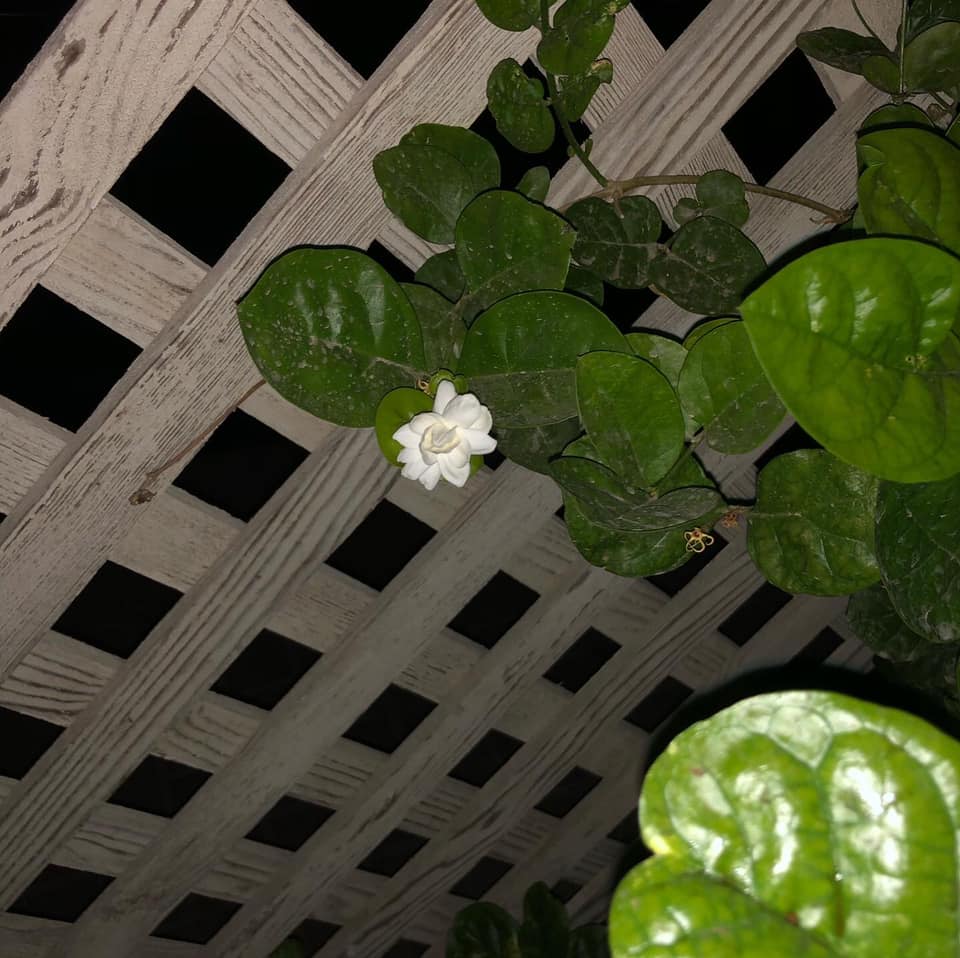
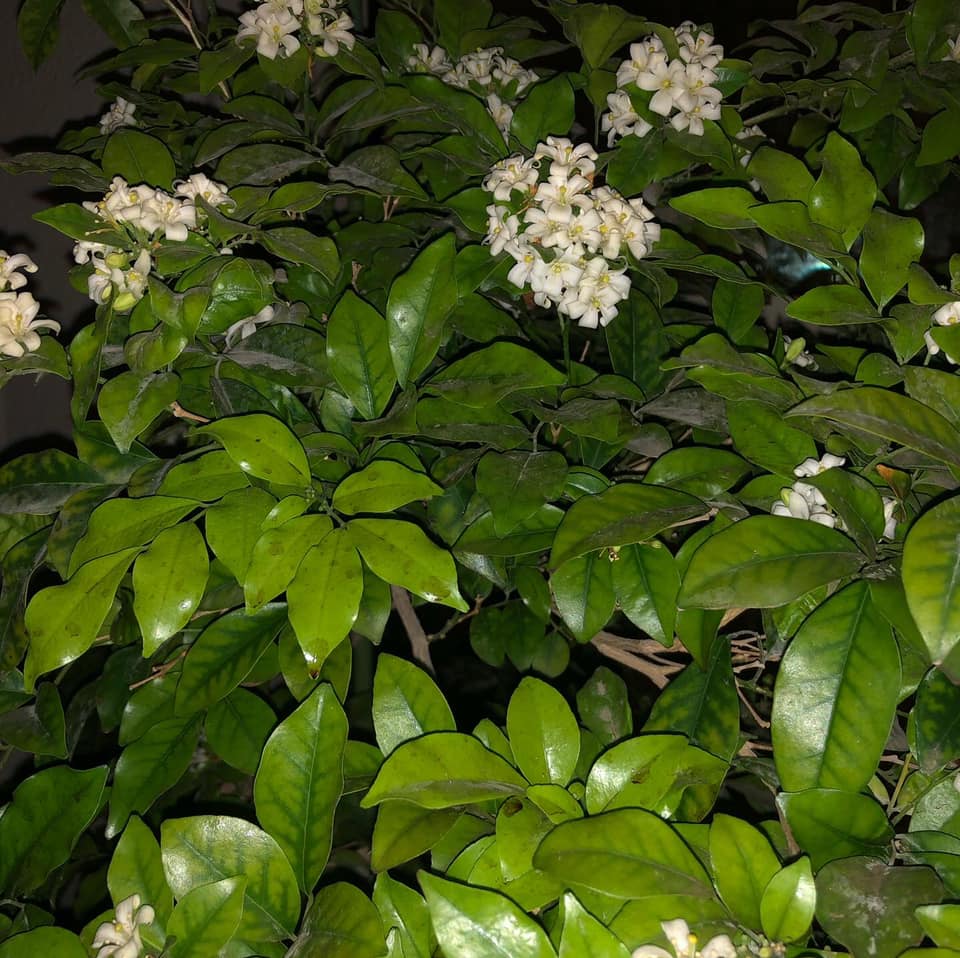
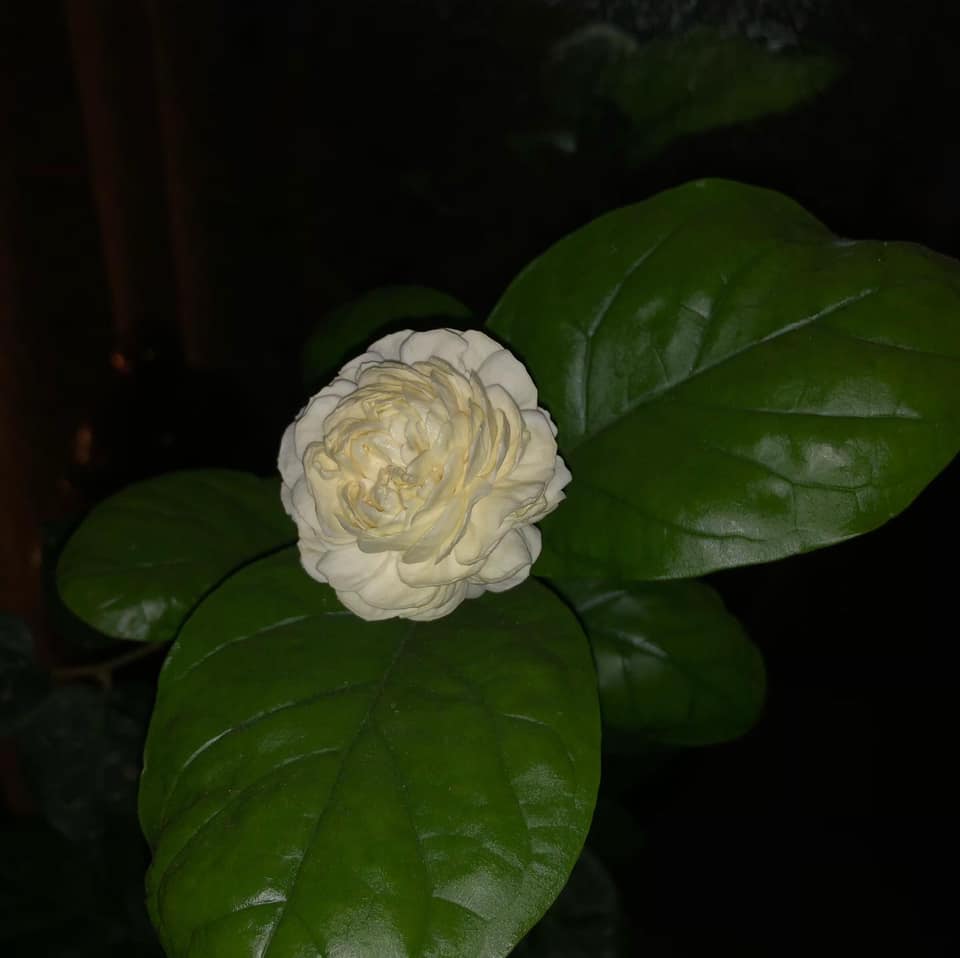
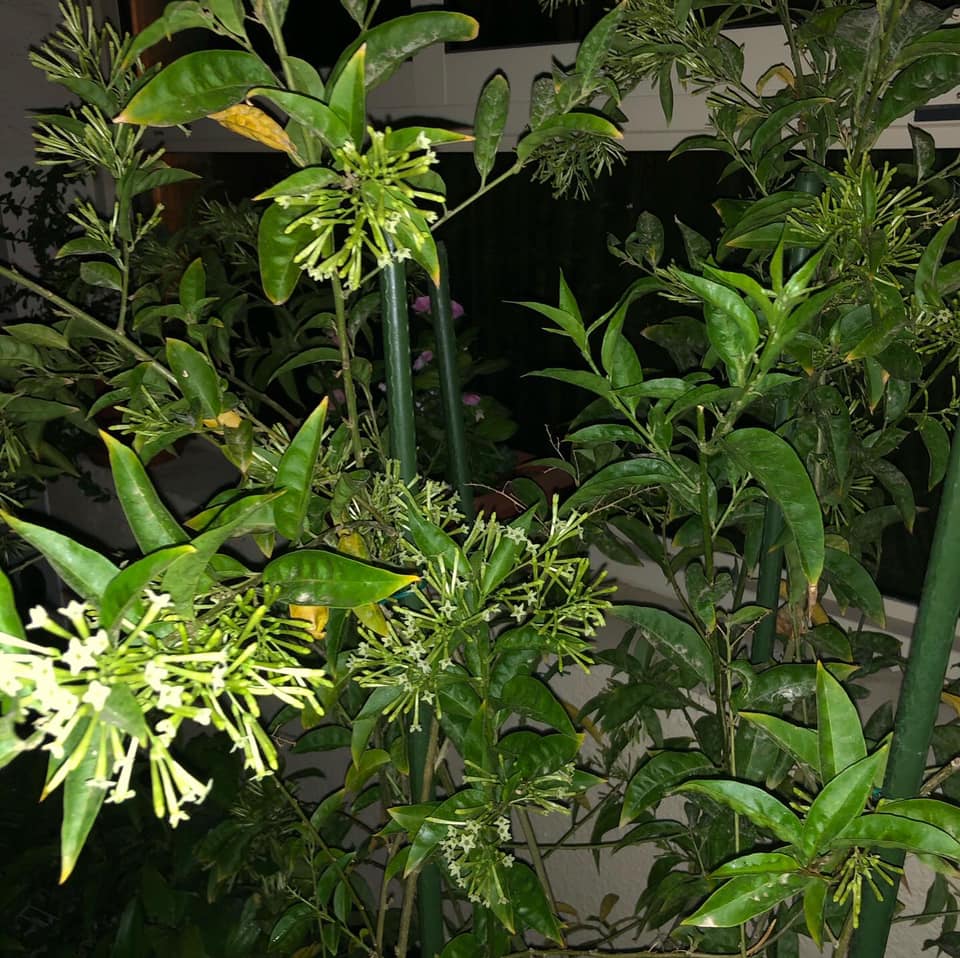
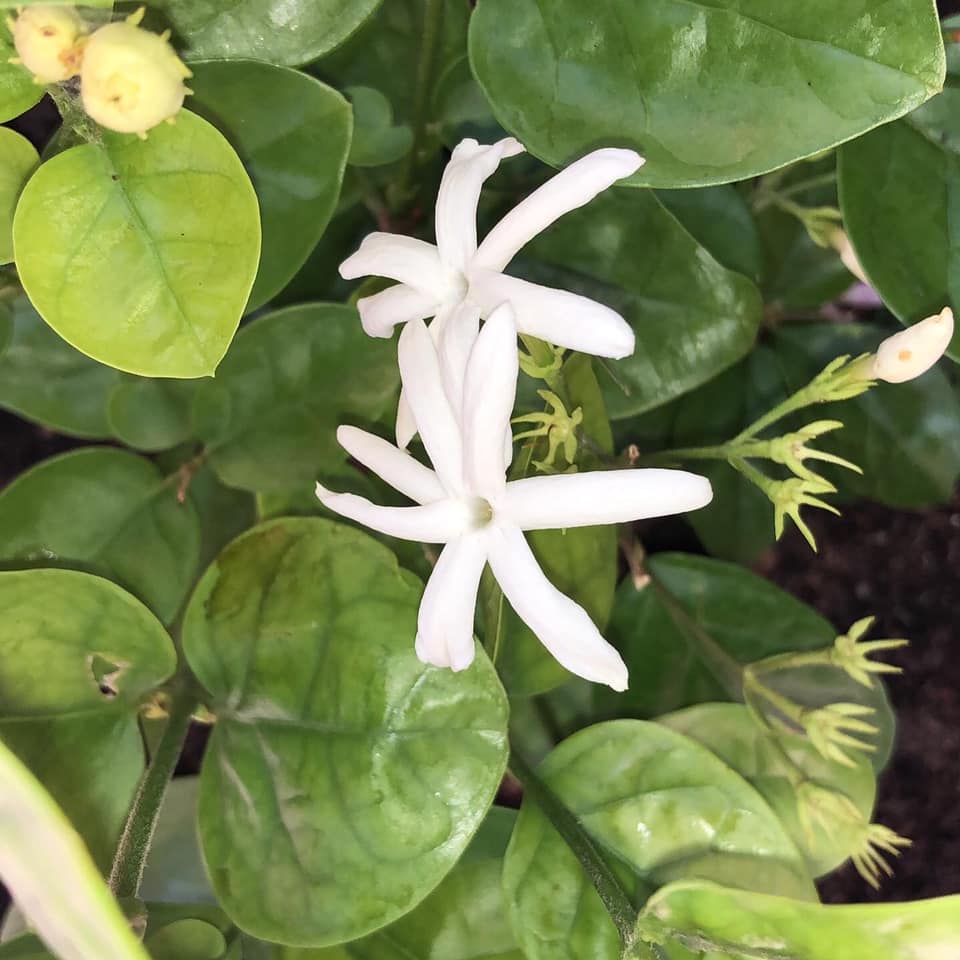
Jasmines are flowering beautifully now. It is their season to shine and they fill my evenings with fragrance beyond compare. However, they do need regular fertilizing and pest control as this is their season. When they are dormant in winter reduce the fertilizer applied to them to only about once a month. Here are a few tried and tested ways to fertilize jasmines for maximum flowering.
1. Rice wash water- As advised by Abdulji @Abdul Kader save the water you use to wash your rice and lentils in a separate bucket or container. Let it ferment for at least 24 hours and use that to water your jasmines. You will see the difference within days. Leaves are fresher and blooms are larger.
2. Fruit ferment recipe. I shared a fruit ferment recipe earlier as advised by Mr. Essa Kaber Farm. That works brilliantly as well.
3. Goat manure is cooler than cow manure and is really good for jasmines and can be applied until the end of June.
4. Fermented, diluted, and unsalted Laban. I normally wash out my yogurt containers nicely and save that water and leave it to ferment for a day or so. This is very good for all flowering plants. You can also use about 1 glass of Laban unsalted dilute 5-6 times with water and water your plants. Jasmines and curry leaves do well with this.
5. The time-tested banana peel and onion peel water works well. Just dump the peels of 4 bananas and 4 onions in half a bucket of water ferment for 3-4 days, strain, mix with an equal amount of plain water, and water your plants. The leftover peels can be soaked one more time and used in the same way or put in compost.
6. Use a mix of bonemeal goat manure and vermicompost as top dressing may be at the end of April if you have fed them recently or otherwise do it now. You can also add high phosphorus NPK to the soil now. All chemical fertilizing can be done only until about mid-May.
The pruning of dried leaves, and cutting and pinching off spent flowers are essential for the abundant flowering of jasmines. Remember to prune with very sharp scissors so that the plant is not stressed.
Adding diluted vinegar to soil helps more abundant blooming. Mix vinegar to water 1:10 proportion and use. You can also bury a piece of Alum, a little away from the roots which helps in flowering.
Enjoy your jasmines!






Recent Comments